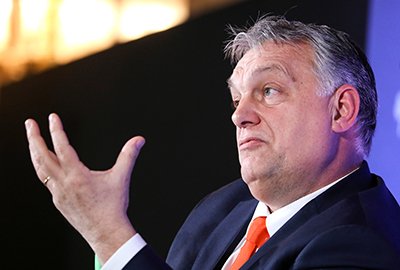Hot Spots, Part IV - Eastern Europe
The Iron Curtain fell three decades ago. But liberty in the former Soviet sphere remains elusive.
The drumbeat of war is sounding at the doorstep of eastern Ukraine. In Poland, desperate migrants from the Middle East and Afghanistan had to flee from tear gas and water cannons. And Hungary’s right-wing dictator is cracking down on any hint of dissent. Liberated from the grip of authoritarian rule 30 years ago, Eastern Europe has become a tinderbox — and a headache for U.S. diplomats. Two seasoned experts on the region discuss the latest on these dilemmas, and what America’s role in solving them might be.
Heather Conley and Stephen Mull, both foreign policy analysts and former diplomats, say Russia’s efforts to destabilize democratic institutions in countries that once lay behind the Iron Curtain represents a serious threat to peace and security in Europe. And while war in their view is not a viable option for Western powers to protect vulnerable democracies in this neck of the woods, they do say the United States and its allies must act to apply pressure against Russian hostility in every other way possible — including stiffer economic sanctions and obstruction of the Nord Steam 2 pipeline extension under the Baltic Sea.
About This Series
With this episode, we’ve rounded out Season Three, as well as our a tour of democracy hot spots both abroad and close to home. We began in November with an examination of the effort in our own hometown to hold far-right extremists to account for the violence inflicted during the “summer of hate.” Then we turned to Cuba and put the unprecedented July 11 protests on the island into historical context. Last week, we heard from a Burmese pro-democracy activist who had to run for his life after the military coup in February.
Coming soon during our post-season break: a look back at the Jan. 6 attack on the U.S. Capitol one year on. In the meantime, check out our emergency episode released in the wake of that insurrection.












